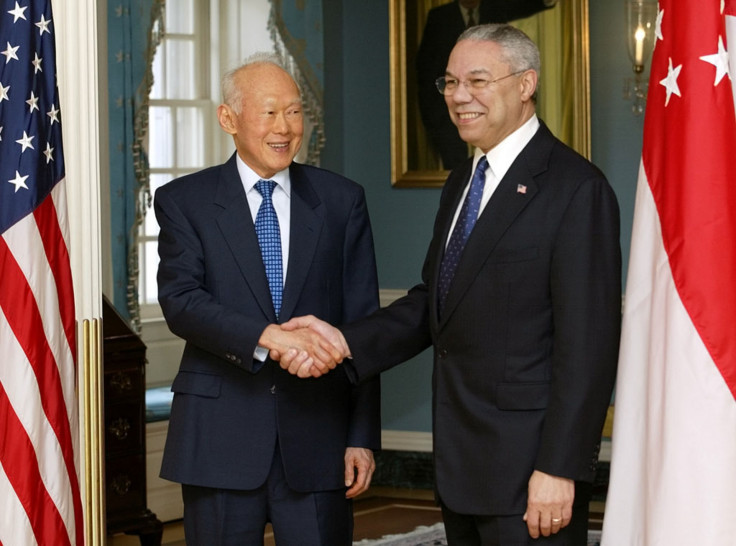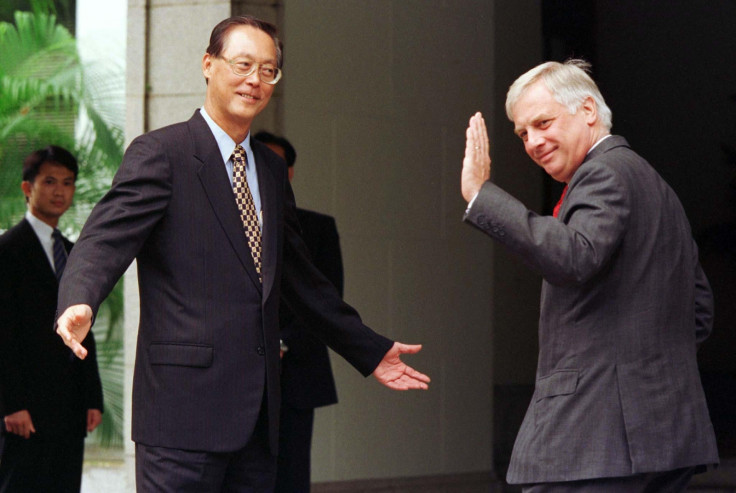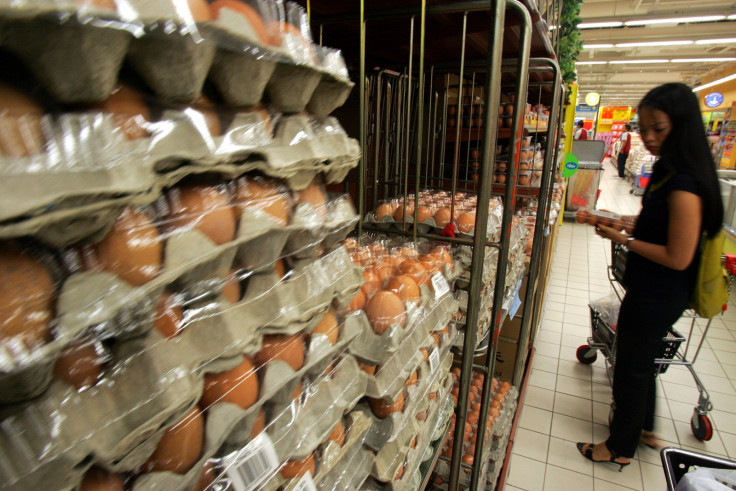Lee Kuan Yew death: Can Lee Hsien Loong take Singapore into the future?

Lee Kuan Yew, 91, a fiery statesman who is credited with transforming modern Singapore, has passed away after almost 50 years in power with the People's Action Party (PAP), the ruling political party in the country.
He earned the respect of many politicians around the world for his fierce determination and powerful speeches, as well as his unconventional political methods, which are considered either pragmatic and sensible, or autocratic and repressive, depending on whom you ask.
But now he is gone, the people of Singapore, along with the rest of the world, are looking to his eldest son Lee Hsien Loong, 63, who has already been prime minister for a decade, to see how he will lead the country in the coming days and years ahead without his father's guidance.
So how does Lee Hsien Loong's style of governance differ from his father's? IBTimes UK takes a closer look.
Personality differences
Lee Hsien Loong was born in a different era to his father – while his father grew up in the Roaring Twenties and 1930s before struggling with the horrifying realities of the Second World War, Lee Hsien Loong was a 1950s baby boomer.
"Loong is a different personality from me. He's more, how would I say, equable – less intense than my daughter who takes after me," Lee Kuan Yew once said in an interview with the Straits Times.

Although politics has been a big part of Lee Hsien Loong's life, Dr Alan Chong, associate professor in International Relations at Nanyang Technological University's S. Rajaratnam School of International Studies says the current prime minister is not as comfortable with foreign dignitaries as his father was.
"Lee Kuan Yew was in the company of statesmen like Henry Kissinger and Ronald Reagan. He had a more aristocratic air about him," says Chong.
"[In contrast] Lee Hsien Loong is a bit shy of jetting all over the world to offer people advice. Intellectually, he's not like his father in that he's not trying to sketch a grand design for the development of Singapore – he works with a team, the cabinet."
Dr Felix Tan, head of the Global Education programme at the Singapore Institute of Management, agrees: "On the global stage, Lee Hsien Loong will always be the son of Lee Kuan Yew. It will be a huge challenge to fill his father's shoes."
Then versus now
"At the time, Singapore was just out of the war when Lee Kuan Yew took charge. People needed housing, we needed public services, there was a lot of stuff that needed to be put in place. The political circumstances were just vastly different from being a prime minister in the Federation of Malayan States, to having to run an entire independent country by yourself," says Lau Joon-Nie, a media studies lecturer from Nanyang Technological University.

"But Lee Kuan Yew recognised that his approach to politics probably wouldn't work in this day and age. That's why he stepped down in 1990."
Lee Hsien Loong was considered to be part of a new batch of leaders during the transition of power in the PAP, and as deputy prime minister he worked closely with Lee Kuan Yew's successor, Goh Chok Tong, who served as PM from 1990 until 2004.
"Goh Chok Tong tried out a different style. Thanks to better education, the people wanted to be consulted, and even if they were not completely consulted, they wanted to be seen to be listened to," says Chong.
"Goh Chok Tong struggled successfully to forge his own style and regain the trust of the people. Lee Hsien Loong has inherited a very changed Singapore who that has already got used to the style of Goh Chok Tong."
Differences in policies
One of the key policies of Lee Kuan Yew and the PAP was the establishment of a meritocracy, whereby intelligence and aptitude are valued above all else. There is no welfare system and people are strongly encouraged to better themselves, but this has led to a worrying poverty problem and a sharp divide between the rich and the poor.

According to Chong, the likelihood of a welfare system being introduced in Singapore is highly unlikely but Lee Hsien Loong has shown he wants to fix the poverty problem.
"It's welfare by other means. The PAP will not deviate from Lee Kuan Yew's original blueprint but Lee Hsien Loong has been very attentive to the plight of the poor, those who haven't benefited from the globalised Singapore economy.
"In the 10 years he has been prime minister, he has gone out of his way to focus on this with every budget, as well as trying to bring property market prices down."
Chong added the government has also intervened to subsidise food prices in NTUC Fair Price supermarkets, which tend to set the benchmark of prices in all supermarket chains across the nation.
Talking and listening to the people
"Lee Kuan Yew was the right man for the right time under very difficult circumstances," says Dr Gillian Koh, a senior research fellow at the National University of Singapore's Lee Kuan Yew School of Public Policy.
"But today the desire is for life to be viewed in a less intense way, since our life is not being threatened by communism and race-based politics. The public perception of Lee Hsien Loong is that he seems to be far more willing to engage the arguments."
Chong agrees: "He is far more interested in getting out and about with the grassroots leaders, hearing what they have to say, than his father ever was."
But many disagree that Lee Hsien Loong's government is more open to differing opinions, such as Reform Party leader Kenneth Jeyaretnam.
"The PAP want people to think he's giving in to the public. 'Give up on democracy as we're listening to you', but if you look at how they are treating Singaporean bloggers like Roy Ngerng – Lee Hsieng Loong wants to show he has his own set of knuckle dusters," he says.
The PAP needs to change

Tan, Chong, Koh and Lau all agree things were not perfect with the PAP but, nevertheless, respect and gratitude needs to be shown to Lee Kuan Yew for taking the actions he did that have brought Singapore to where it is today.
"I'm part of Generation X, the generation behind the current young people, who are Generation Y. Oh, we had our phase of feeling annoyed with the PAP and feeling their policies were high-handed, but now that I have children, I think differently. I know why the PAP did what they did," says Tan.
"We need to think about what is the trade-off, should we sacrifice safety and security for the hurly-burly of an unfettered liberal democracy?" says Lau. "Singaporeans are very practical. And this outpouring of grief, no one made them stand in the sun for 10 hours queuing to pay their respects to Lee Kuan Yew. They're going of their own volition."
But change is still needed within the ruling PAP party.
"It's the party that needs to change, not just listening to Singaporeans. Unfortunately I think he has a very weak team, of like-minded people who wouldn't dare to rock the boat or criticise their own party's policies," says Tan.
"There will be a slow-motion sort of change. Certainly people are unhappy with the PAP about a lot of things, but the people understand the opposition cannot yet form a proper government. I think Singaporeans have been trained to voice their displeasure in ballot boxes, in a gentlemanly way," says Chong.
"Can Lee Hsien Loong make it? He has a fighting chance, but only time will tell. This is the year of patriotism. Any time after August 2015 would be a good time for the PAP to call an election."
© Copyright IBTimes 2025. All rights reserved.





















